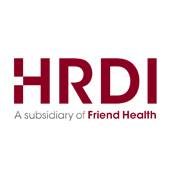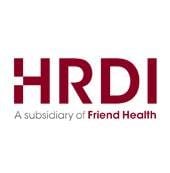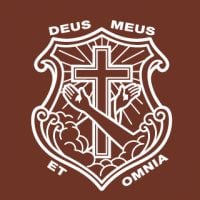Cornerstone Recovering Community
Drug Rehab Center in Chicago, Illinois
Cornerstone Recovering Community in Chicago, IL provides comprehensive and compassionate care for addiction recovery through evidence-based treatment approaches, personalized care, and various therapies.
About This Illinois Facility
Cornerstone Recovering Community in Chicago, IL, is a facility dedicated to providing individuals with the support and services necessary to heal from addiction and substance abuse. Since 1988, their experienced counselors have been helping adults in the Chicago area to establish lifelong recovery through comprehensive and compassionate care. A variety of inpatient, residential, outpatient and intensive outpatient programming is available, and they also offer personalized aftercare services such as family and individual counseling.
Cornerstone Recovering Community employs evidence-based treatment approaches designed to meet each individual’s needs. Treatment plans are tailored to the individual’s goals, and various therapies are used such as cognitive-behavioral therapy, psychotherapy and 12-step facilitation. Patients also benefit from a personalized case management team, which helps with the transition to living a healthy and sober life outside of the facility. Patients also have access to a variety of holistic activities, as well as recreational and experiential therapies.
Cornerstone Recovering Community is a licensed facility by the Illinois Department of Public Health, is CCAPP accredited, and has been in operation for over 30 years. They provide a drug-free, smoke-free facility, and offer a variety of activities and programming designed to meet the specific needs of each patient. Additionally, they provide a variety of payment options and are dedicated to helping their patients find the right resources for their recovery.
Genders
Ages
Modality
Additional
Conditions and Issues Treated
The inappropriate use of any drug in Chicago, IL is substance abuse. This involves alcohol, medications, and illicit drugs. With a combination of physical and psychiatric therapies, drug addiction is successfully treated at Cornerstone Recovering Community. After Detox is complete, individuals follow-up with treatments treating the root cause of the addiction.
Levels of Care Offered at Cornerstone Recovering Community
This center offers a variety of custom treatment tailored to individual recovery. Currently available are Aftercare Support, Drug Rehab, Intensive Outpatient, Outpatient, Residential, with additional therapies available as listed below.
Daily trips to the hospital that provides the treatment include intensive outpatient services (IOP). IOP in Illinois is appropriate for patients in residential recovery facilities that have been diagnosed with addiction. Patients return to their everyday lives gradually, increasing the likeliness of success in treatment.
Outpatient rehabilitation is a treatment that exists if a patient is not checking into Cornerstone Recovering Community long term. In addition to helping them recover, the patient attends regular therapy sessions and detox and participates in other therapies. However, this is all primarily done from home. As a follow-up to inpatient treatment, outpatient treatment is usually recommended.
After rehabilitation, it helps people return to their everyday lives. It may also be an alternative to inpatient care in some situations. If they cannot leave their jobs, children, or don’t have the money for inpatient care, people can choose this method. Inpatient therapy, however, is the best method and most suggested level of treatment offered by Cornerstone Recovering Community in recovering from addiction.
Residential treatment programs are those that offer housing and meals in addition to substance abuse treatment. Rehab facilities that offer residential treatment allow patients to focus solely on recovery, in an environment totally separate from their lives. Some rehab centers specialize in short-term residential treatment (a few days to a week or two), while others solely provide treatment on a long-term basis (several weeks to months). Some offer both, and tailor treatment to the patient’s individual requirements.
Treatment for substance abuse does not cease after an individual successfully completes a detox or rehabilitation program. A vital follow-up treatment service is aftercare support provided to individuals at Cornerstone Recovering Community in Illinois after they attain initial sobriety.
Aftercare support often takes the following forms: 12-Step Programs, Outpatient Treatment Programs, and Support Groups. The most effective aftercare programs are tailored to meet an individual’s specific needs and circumstances.
Therapies & Programs
Recovery can be more effective if the entire family’s involved. Family therapy hosted by Cornerstone Recovering Community brings in the addict’s family to explore genetic factors. It gives loved ones the tools for dealing with addiction and its underlying mental issues. It is a recommended step in helping addicts adapt to sober living.
Trauma is one of the most common causes of psychological disorders. It’s often found in people with addiction diagnoses. Trauma therapy addresses this by examining the emotions and thoughts people have formed due to past traumas. Traumas are complex but trauma therapy can reduce their ability to contribute to addictive behaviors.
Dialectical Behavioral Therapy is a form of Cognitive Behavioral Therapy. It is designed for those who are prone to self-harm and suicidal behaviors. Cornerstone Recovering Community aims to help patients understand the relationship between their thoughts, feeling and behaviors and it gives them the tools to make a change. It is effective for those whose addictions and behaviors stem from extreme mental health issues.
Self-defeating thoughts and habits can limit your possible successes. Some examples of this are procrastination, unhealthy eating and angry outbursts. REBT is a method of specific counseling offered by Cornerstone Recovering Community that replaces negative and self-limiting thoughts.
A 12-Step Program is a common method that is used to treat addiction. This format is used for both drug and alcohol treatment. It is extremely popular and successful for large numbers of people and the staff at Cornerstone Recovering Community are trained to assist in 12-step management.
Contingency Management (CM), also known as motivational incentives or prize method, is a behavioral therapy type. It is based on the principle that their consequences influence the behaviors of an individual. So, it promotes the desired behavior by giving rewards while discouraging the unwanted behaviors by withholding the rewards or even by giving punishments. One of the expected desired behavior is the absence of drug in a toxicology screen, and the rewards vary from prize or vouchers, to experiences. CM is used for individuals who need therapy for more than 3 months, and it has the advantage of being implemented by family members.
Payment Options Accepted
For specific insurance or payment methods please contact us.
Additional Details
Specifics, location, and helpful extra information.
Chicago, Illinois 60628 Phone Number(773) 909-2424 Meta DetailsUpdated November 25, 2023
Staff Verified
Patient Reviews
There are no reviews yet. Be the first one to write one.
Chicago, Illinois Addiction Information
In 2016, more than 2,350 Illinoisans died from drug overdoses. More than 5,500 deaths annually occur in Illinois due to the abuse of alcohol and other drugs. 7.17% of Illinois residents reported using illicit drugs in the past month (2018). Substance abuse costs the state approximately $3.5 billion every year.
Drug misuse can lead to other serious health problems, including HIV/AIDS or hepatitis C infection and liver disease. Chicago's main drugs of abuse include heroin, cocaine, and methamphetamine. Field sobriety tests can be used to determine if someone is driving under the influence of drugs or alcohol. There are about 872 drug treatment centers in the city, and the number of people seeking help for addiction continues to rise.
Treatment in Nearby Cities
- McHenry, IL (55.3 mi.)
- Palos Hills, IL (9.9 mi.)
- Vienna, IL (303.4 mi.)
- Jerseyville, IL (227.7 mi.)
- Kewanee, IL (123.1 mi.)
Centers near Cornerstone Recovering Community
The facility name, logo and brand are the property and registered trademarks of Cornerstone Recovering Community, and are being used for identification and informational purposes only. Use of these names, logos and brands shall not imply endorsement. RehabNow.org is not affiliated with or sponsored by Cornerstone Recovering Community.





